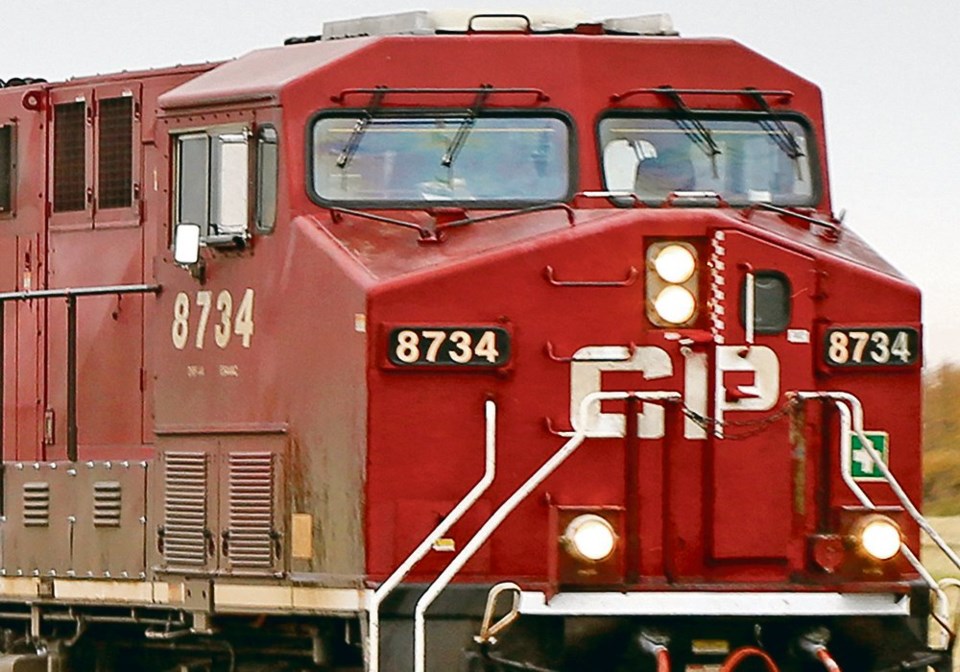Trains often feel like the bane of our existence in Estevan and other Saskatchewan communities.
After all, the biggest traffic jams we encounter in southeast Saskatchewan will be at a train crossing.
We get royally ticked off when a train impedes traffic at the most inopportune times, and we get annoyed and startled by the loud train whistles. It’s particularly frustrating for those who live in close proximity to the railroad. CP Rail and CN Rail can justify it because of the vital role they play in the economy.
And the public certainly recognizes the vital importance that trains play to our economy. They transport a variety of commodities that are the backbone of our province. Agriculture, mining, the energy sector and so many more rely on transportation by rail. Few provinces, if any, rely on railway companies more than Saskatchewan.
CP Rail locked out approximately 3,000 conductors, engineers, train and yard workers early on Sunday, and many of those workers were on the picket line that same day. The good news was that the lockout ended Tuesday when the two sides agreed to binding arbitration, but this work stoppage couldn’t have come at a worse time, due to the ongoing issues with the global supply chain.
The federal government said it wants to see a rapid end to this work stoppage, but wasn’t immediately prepared to enact back to work legislation, because the two sides were still talking. If negotiations would have broken off, or if there wasn’t a settlement in short order, the feds likely would have moved in.
This work stoppage shouldn’t have been allowed to proceed in the first place. Not at this time.
Under normal circumstances, if you were to ask me about enacting back to work legislation for a strike or a lockout for CP Rail, or CN Rail, or businesses within the transportation and delivery sectors, I would say don’t enforce it. Allow the work stoppage to proceed, and only force them back to work if it’s absolutely needed to reach a settlement.
In most work stoppages, a resolution will be reached without meddling. It might take a bit of time, but it will happen.
But this is not a normal situation. Not with the supply chain issues facing the world. Not as we continue to emerge from the economic impact of the COVID-19 pandemic.
Even a short work stoppage at CP Rail has significant economic impacts.
There was too much on the line to allow for a strike or a lockout at a company with the impact of CP Rail.
And it gets back to what we’ve heard so many times in the last two years about essential services. Even before the pandemic, we knew that CP Rail was essential.
The employees’ right to strike is an important part of labour negotiations. Take it away, and you significantly hinder their ability to bargain. Same goes for a lockout. If employers can’t lock out employees once a collective bargaining agreement expires, then they lose some of their power in the perpetual give and take situation.
There are some professions that can’t go on strike. Law enforcement, for example. Many who work in health care. When people enter these sectors, they know they won’t be able to go on strike. They’re too vital. (It also means they need to be paid accordingly).
CP Rail was too important in 2022 to be shut down. That might not have been the case during negotiations for their previous contract, and it might not be the case in the next round of bargaining, but it’s the reality right now.
Yeah, we didn’t have to worry about trains. We didn’t have to decide whether to drive to the Kensington Avenue crossing because we’re not sure how long the train blocking 13th Avenue will take to clear.
We didn’t have to worry about a train showing up on our way to work.
But I think we all knew we needed CP Rail to be operating, now more than ever.
And even though we value their contributions, we can still curse repeatedly the next time a train creates a southeast Saskatchewan traffic jam at the most inopportune of times.






